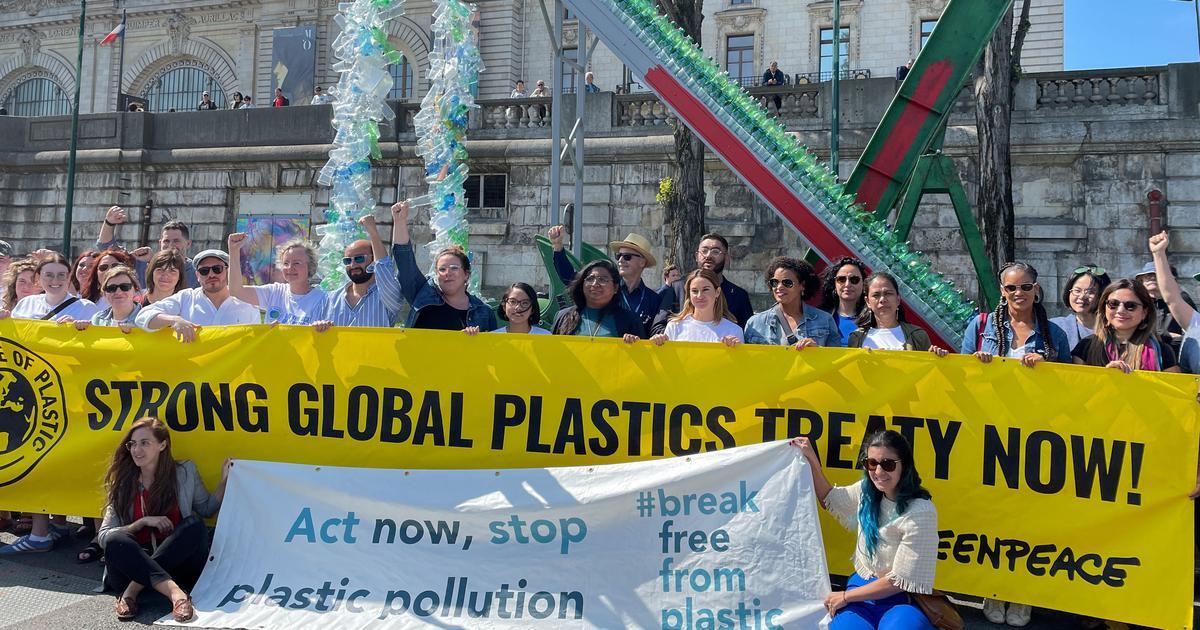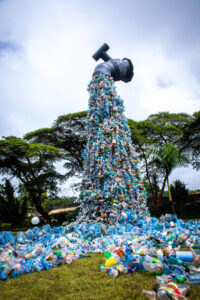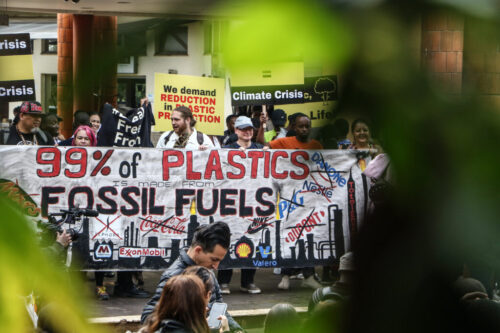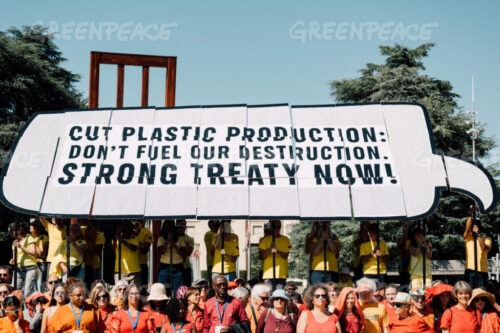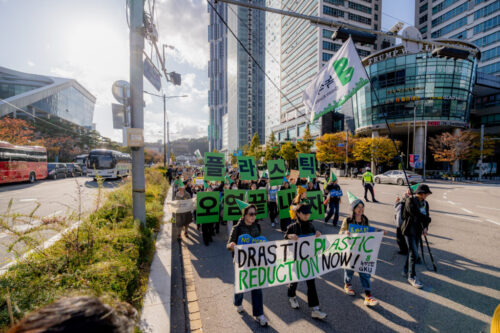By Nicky Davies | February 21st, 2025
For years, the plastic pollution conversation revolved around waste management, with the plastics industry peddling the false story that we can recycle and clean up our way out of the deluge of plastic pouring into our rivers and seas and toxifying our bodies. Events of 2024 showed that has changed for good, and we are ready for 2025 to be our biggest year.
Plastic Solutions Fund partners in the field are doing brilliant work that is both changing that narrative to focus on the root cause of over-production of plastic, driven by the interests of fossil fuel and petrochemical companies, and that the solution is to build an economy based on reuse systems. The reuse economy is coming and next month, our team will be in Berlin, visiting projects at the vanguard of this new economy.
The Global Plastics Treaty negotiations are a once-in-a-lifetime chance to make a real shift towards a future free from plastic pollution. The incredible activists and organisations working on the treaty over the past three years have done heroic work. I wanted to take the chance to both look back at how far they have come, the lessons I see from recent developments, and what we have to look forward to.
What happened in Busan at the last negotiations: a win that looked like a setback
In November 2024, governments met for a fifth time in Busan, South Korea, to further thrash out a treaty text. The weeklong negotiations were frustrating for our partners often shut out from the negotiating room. And there was also disappointment because a final treaty text did not emerge as had been hoped, and an additional session had to be scheduled for 2025. However, a critical breakthrough was achieved by centring the debate on securing plastic production limits.
Busan was the watershed where support for these limits became mainstream amongst a majority of the world’s governments. More than 100 countries refused to back down on the need for a cap on plastic production. This grouping—spanning the Global North (including the EU, the UK, Canada, New Zealand, and Australia) and countries from the Global South, including some oil-producing states such as the UAE and Nigeria—grew in number during the talks, increasing the likelihood of a breakthrough in 2025.
The importance of building leadership across the world
As some global powers step back from internationalism this gives space for others, such as the European Union, Brazil, or the African Union, to step into a more robust role as global leaders. We have already seen African nations driving a progressive agenda to standing ovations in Busan. Expect more of this to come.
Invest globally in civil society to build resilience for progress
This presents a clear lesson for philanthropy: building grassroots power across global regions is essential to creating resilience to pullbacks from other blocs. While there has been insufficient investment everywhere, there has been far too little outside the U.S. Much more investment is needed in the key plastic-producing and -using regions of Asia, Africa, and Latin America. This is key to the Plastic Solutions Fund’s strategy to bolster civil society leadership globally to counteract regressive policies in one region by maintaining momentum for production-side action.
Plastic pollution is a concern for both health and climate
With 99% of plastics being made from fossil fuels and the petrostates being the main blockers to an ambitious treaty so far, much has rightly been made of the links between plastics and climate change. There are also strong reasons for health funders to care about the outcomes of the next negotiations.One new Nature study this month revealed that microplastic contamination in the human brain has increased by 50% in just eight years–becoming a public health emergency. Reducing plastic production and pollution should be recognized as essential to preventing widespread health risks.
The road ahead for philanthropy
We have achieved significant progress towards an ambitious treaty that would have been unthinkable if not for a united global movement that PSF sees as critical to making progress. These wins have come through the hard work of meeting with governments, developing materials and publishing studies to counter industry narratives, planning and preparing across coalitions, and travelling to attend and run events at and around the negotiations themselves. The next will be the sixth of these.
Now is the time for philanthropy to step up and support civil society’s efforts to get the most important environmental agreement for over a decade done. The treaty has renewed the movement’s energy but they require additional resources in order to succeed.
The Plastic Solutions Fund has increased its funding to organisations working to secure an ambitious treaty that caps production, reduces the health impacts of plastics, and creates a just transition for workers. We stand ready to help other funders do the same.
Let’s grab this chance with both hands.

